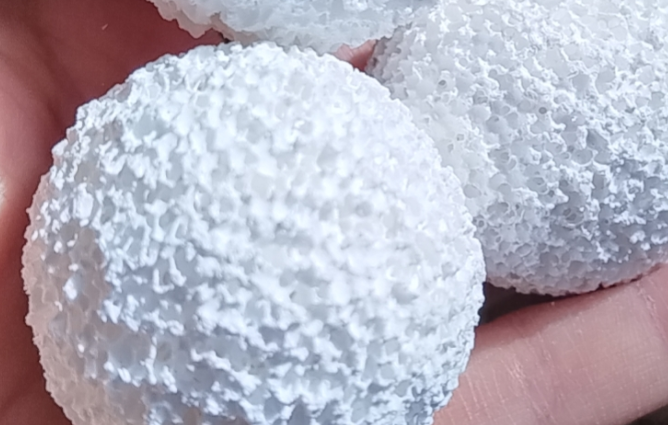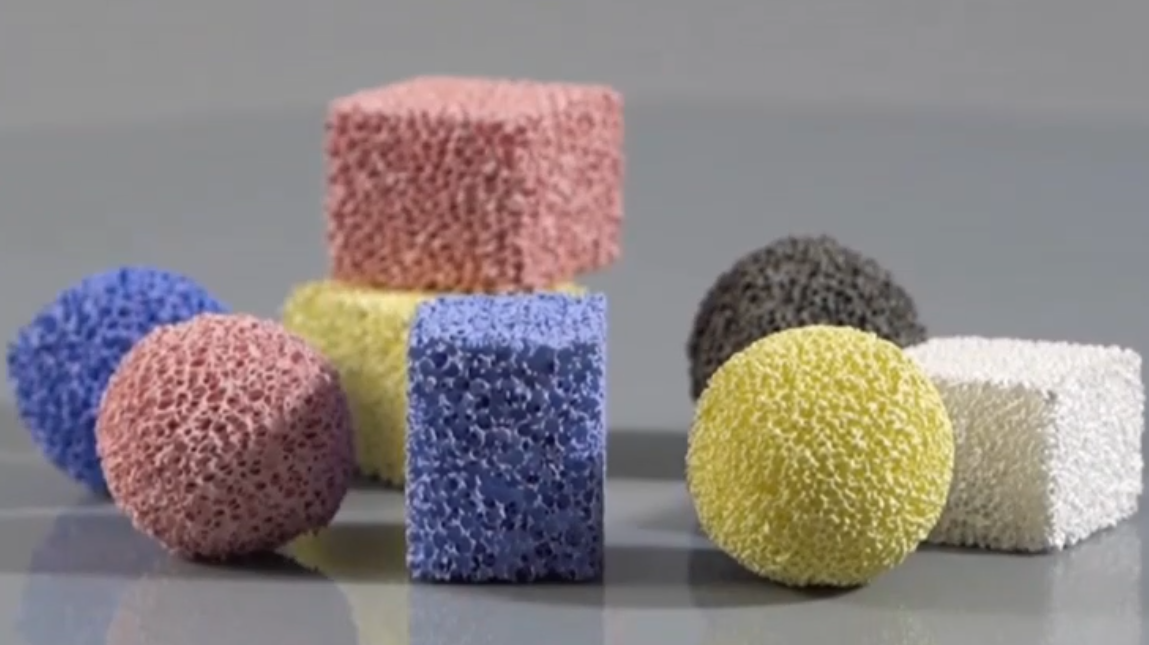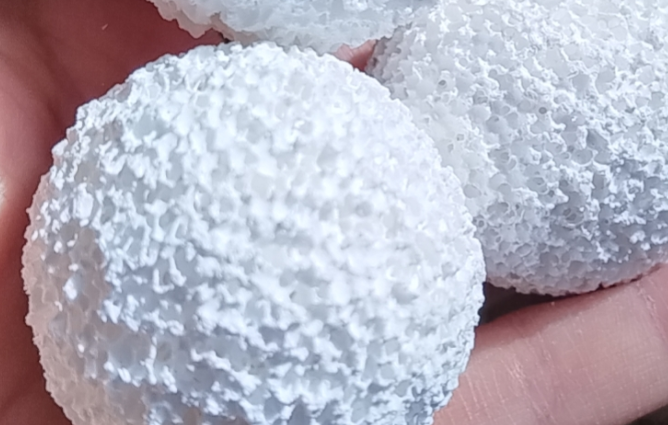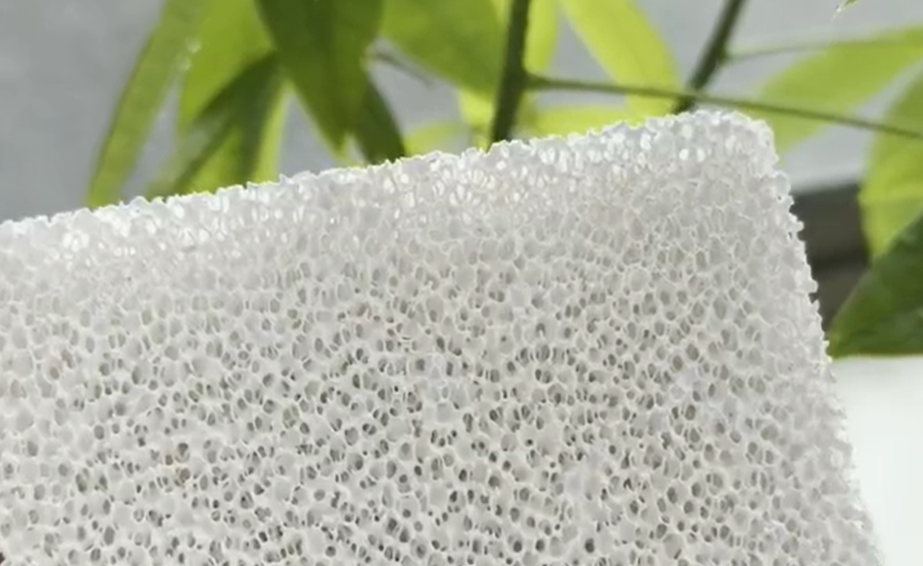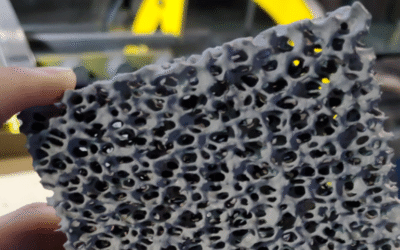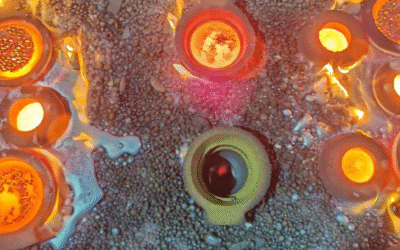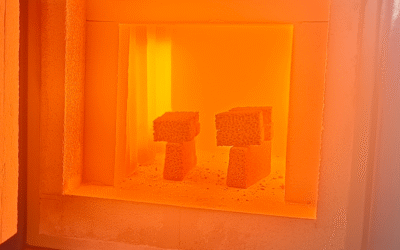From my experience, ceramic water filters are a popular choice for getting safe drinking water. People use them in many places, from homes to disaster relief zones. I find they are great at removing germs. They remove between 97.7% and 100% of E. coli bacteria and get rid of more than 99% of protozoa. Some advanced filters use additives like hydroxyapatite or alumina. I have seen these achieve virus removal rates between 99.45% and 99.999%. In my opinion, these performance levels are excellent and are better than the standards set by the World Health Organization.
I find that many modern Ceramic filters use colloidal silver for its antimicrobial effects. New technologies like nanocoatings (such as TiO2 or ZnO) and new additives (hydroxyapatite, alumina, nutshells) are making them even better. These innovations improve how well the filters remove both germs and chemicals. Flow rates can vary a lot. I’ve seen small models with rates as low as 1.2 L/h, while large designs can go up to 289 L/h.
One of the features I like most is that ceramic water filters keep beneficial minerals like calcium and magnesium. They also do not change the water’s taste and don’t need a power source to run. I believe this unique blend of benefits makes them a solid choice. You get high pathogen removal and good chemical reduction. They have a long service life and come in many flexible designs. Because of this, I recommend them as a dependable Water Purification method to use anywhere.
Where to Buy Ceramic Water Filters: My Top Retailer Picks
Are you looking for a great place to buy ceramic water filters? From my experience, a few key retailers stand out. They offer a good variety, excellent product features, and a solid reputation.
My Favorite Online Retailers and Brands
Doulton: I recommend starting with Doulton, a major name in water filtration. They offer over 42 different ceramic water filter products. You’ll find everything from under-sink systems and countertop units to replacement cartridges. They also have their own gravity-fed systems. I trust their products because they are all British-made and NSF-certified. Their data shows these filters remove up to 99.99% of bacteria, cysts, sediment, and heavy metals. I like that they also keep essential minerals in the water, which makes it taste better. I suggest checking out their Doulton® Ecofast Under Sink Water Filter System with Biotect Ultra.
British Berkefeld: This brand focuses on gravity-fed systems. I’ve noticed they frequently partner with Doulton. Their popular Stainless Steel Gravity System + Ultra Sterasyl ceramic filters are a certified solution. I think it’s an excellent choice if you need to purify a lot of water portably.
Kyn & Folk:
If you value style, I suggest you look at Kyn & Folk. This retailer makes handcrafted ceramic water filters from stoneware. I love their designs and finishes. They come in nice colors like Pistachio, Dune, and Dove. Kyn & Folk filters remove up to 99.99% of microplastics, fluoride, heavy metals, and bacteria. They also keep good minerals like calcium and magnesium in your water. The Ceramic Water Filter – Pistachio is one of my favorite models.
Crystal Quest:
I believe Crystal Quest is a practical choice if you use non-chlorinated well water. Their filters are designed to get rid of E. coli, Salmonella, and other cysts. Their ceramic cartridge systems use an absolute micron size to ensure they work well and eliminate odors. From my experience, the free US shipping on orders over $150 is a great perk.
Walmart:
Walmart is another option with a huge selection. They list 66 different ceramic water filter products. I think it’s a good place to find major brands like Aquacera and CeraMetix. You can find replacement cartridges and complete gravity-fed units for your home. A popular item I’ve seen is the Aquacera 7 Inch Imperial CeraMetix Gravity Replacement Filter.
Product Features and My Opinions
- Contaminant Removal: I’ve found that most top models remove up to 99.99% of contaminants. This includes bacteria, cysts, heavy metals, chlorine, PFAS, and microplastics.
- Mineral Retention: I like that quality ceramic filters let vital minerals like calcium and magnesium pass through. This improves the taste and nutritional value of your water.
- Handcrafted Designs: For those who want something that looks good, I recommend brands like Kyn & Folk. They offer stylish ceramic vessels that fit well into modern home settings.
- Certifications: I strongly advise looking for products with NSF certifications. British manufacturing standards also add a layer of trust. You’ll see this with Doulton and British Berkefeld.
Where I’d Look for the Best Deals and Selection
You can find ceramic water filters through these channels:
– Direct from manufacturer websites (like Doulton)
– Specialized artisan brands (such as Kyn & Folk)
– Large online retailers (like Walmart)
I find it simple to compare features, removal rates, and prices online. You can find options that fit a range of needs, from a permanent home installation to a portable unit for field use.
When you’re ready to buy, I suggest looking for shipping offers. Crystal Quest has free US shipping on orders over $150. Always verify what contaminants the filter removes to make sure it matches your water quality concerns.
Notable Models and Product Lines
To find the best ceramic water filter, I suggest comparing the top models available. I’ll walk you through the leading options. I will cover their features, tech specs, and share my personal take on what makes each one stand out.
Leading Ceramic Water Filter Models
British Berkefeld: This is a well-known gravity-fed ceramic filter. Each filter candle handles about 400 gallons. The systems have NSF/ANSI 42, 53, 401, and 372 certifications. The cost is low, around $0.09–$0.16 per gallon, so it’s a great value for long-term use. From my experience, the lifetime warranty and solid reputation for off-grid and emergency use are big pluses.
Berkey:
I recommend Berkey for emergency preparedness and off-grid living. These filters use stainless steel and are great at removing contaminants. A standard set can filter about 3,000 gallons. The starting price is higher, often $300–$350+, but you’re paying for a durable filter that gives you high-quality water. This is my pick if you want total peace of mind and price is not your top worry.
Alexapure:
I find Alexapure is often compared to Berkey. It stands out with its gravity-fed stainless steel models. Each filter can handle a massive 5,000 gallons, which makes it a great choice for families. The cost is a little lower than Berkey, at $220–$290. I think it’s a smart buy for heavy use.
Aquacera:
Aquacera’s gravity-fed filters perform much like Berkey and Alexapure, but their systems cost less. I’ve noticed their replacement filters are also cheaper, which lowers the long-term cost. If you want top performance on a smaller budget, I suggest you look at Aquacera.
Doulton:
Doulton makes both countertop and under-sink ceramic water filters. I find these work well for homes and for travel. Their filters last for about 600 gallons and have their own certifications. They are designed to remove bacteria, sediment, and cysts. With prices from $80–$210, you have a lot of options.
Walter Filter:
If you care about how your filter looks, Walter Filter makes ceramic systems from clay. I like that these countertop filters look good while still cleaning your water effectively. Each filtration system handles about 600 gallons. I think the handcrafted design really makes them stand out.
Key Technical Features and Performance Specs
- Filter pore size: Most filters have pores of 0.2–0.5 microns. I know this size is small enough to block bacteria and protozoa.
- Filter replacement interval: Based on my experience, you’ll need to change the filter after 400–700 gallons or every 6–12 months.
- Certification: I recommend looking for top ceramic filter manufacturer brands with NSF/ANSI certifications, mainly for standards 42, 53, 401, and 372. This gives me confidence that they remove things affecting taste and health.
- Gravity-fed system pricing: You can find basic systems like Epic Pure starting around $70. From what I’ve seen, stainless steel units like Berkey or Alexapure can cost over $300.
Comparison Table: Top Ceramic Water Filters
| Model | Type | Filter Capacity | Certifications | Price Range | Replacement Cost | Key Features |
|---|---|---|---|---|---|---|
| British Berkefeld | Gravity | 400 gal/candle | NSF/ANSI 42,53,401 | $156+ | ~$40/filter | Lifetime warranty, emergency use |
| Berkey | Gravity | ~3,000 gal/set | Manufacturer tested | $300–$350+ | ~$120/set | Stainless steel, high contaminant reduction |
| Alexapure | Gravity | ~5,000 gal | Manufacturer tested | $220–$290 | ~$120 | High capacity, off-grid ready |
| Aquacera | Gravity | ~600 gal/candle | Manufacturer tested | $120–$170 | <$40/filter | Economical choice, comparable performance |
| Doulton | Counter/sink | ~600 gal | NSF/ANSI available | $80–$210 | ~$40/filter | Portable/travel, wide product range |
| Walter Filter | Countertop | ~600 gal | Manufacturer tested | $150–$200 | ~$50/filter | Handcrafted design, clay construction |
As you can see, there is a wide variety of ceramic water filters. They can work for your home, for off-grid living, or for emergencies. Based on my research, there are many choices for filter capacity, certifications, and price. I’m confident you can find one that fits what you need.
My Guide to Buying a Ceramic Water Filter
What to Expect on Price
I find that entry-level or tabletop models cost between $70–$200. (e.g., British Berkefeld, Aquacera Traveler XL) Mid-range to high-end systems can cost from $200–$449+. (e.g., Berkey, Alexapure)
In my experience, popular gravity filter units are priced from $150–$200. (British Berkefeld, Aquacera) For larger families, premium models with high capacity can cost $300–$400 or more.
Replacement Filters and How Long They Last
Replacement cartridges cost about $22–$37 each, sold as a single or a pair. A filter should last 6 months to 1 year. This depends on your water quality and how much you use it.
Here are some capacity examples:
- Based on my research, Aquacera suggests replacing your filter every year.
- Berkey filter elements can last for up to 3,000 gallons each.
System Size
Small units hold 1–2 gallons of water. (British Berkefeld 1L, Aquacera Traveler XL) I recommend larger units of 2–4 gallons for families. (Big Berkey, Alexapure, Berkey Imperial) These systems can serve a single person, a couple, or a family of 4 or more.
Filter Speed
Gravity-fed ceramic systems filter under 3.75 gallons per hour. Your flow rate might slow down if your water is very dirty. It can also slow if you use multiple filters at once.
What the Filters Remove
These filters work well against bacteria, protozoa, and cysts. They also clear up cloudy water, remove microplastics, and often reduce chlorine, lead, and heavy metals. Some models, like specific ones from Aquacera, can lower fluoride by over 90%. I strongly suggest you check third-party lab reports. This confirms what contaminants the filter actually removes.
Certifications I Look For
For any removal claims, I recommend looking for NSF/ANSI 42, 53, 401, or 372 certifications. For example, the British Berkefeld Ultra Sterasyl is certified to remove bacteria and reduce heavy metals.
Warranty Information
From my experience, the filters themselves are covered for manufacturer’s defects. The system body, if it’s stainless steel, often has a warranty from 1 year to a lifetime.
Portability and Space
Gravity and countertop units are portable. You can take them apart and move them easily. I think they’re great for emergencies, camping, living off-grid, and rentals. Undersink filters are a permanent choice. They save counter space, but you can’t move them.
Brands and Suppliers I Trust
Some key brands are British Berkefeld (UK/US), Doulton (UK/US), Aquacera (US), Berkey, and Alexapure. You can buy these from the company directly or from major stores.
Where to Buy
I suggest buying from the brand’s own website for official guarantees. You can also find them at specialty water filter stores. Large online stores sell them too. (Amazon, Fresh Water Systems, Walmart, etc.)
Things to Know Before You Use It
You must prime most ceramic filters before you use them. This just pushes out any trapped air. If your city water has fluoride or arsenic, I have a tip. Check if you need an add-on filter. A standard ceramic filter might not remove these without extra parts.
Some Price Examples
A British Berkefeld Gravity System is about £149.95 in the UK. A replacement filter costs around £22.45. The Aquacera Traveler XL is about $200 in the US. A replacement candle costs about $30 per year. A Berkey or Big Berkey system is $300–$400+. Black Berkey replacement filters are around $37 for a pair.
Choosing the Right Ceramic Water Filter
I suggest you look at a few key things when picking a ceramic water filter. Think about what it removes, the filter type, its flow rate, and how long it lasts. Also, consider the maintenance it needs and if it suits your water quality.
Key Factors I Recommend You Consider
Contaminant Removal Efficiency From my experience, ceramic filters remove 90–99% of bacteria and protozoa. This performance is better than EPA standards. They work well against algae, E. coli, and salmonella. They also remove dirt and sediment. If you need to filter out chemicals or heavy metals, I recommend a hybrid filter. These models combine ceramic with Activated Carbon or ion exchange resin to tackle more pollutants.
Filter Type and Price Ranges
- Pot Filters
These are simple, bucket-style clay pots. They are very affordable at $5–$20. You can find them from brands like Potters for Peace, Hydraid, and Justa. I think they are great for basic use, but be aware they have a higher risk of water getting contaminated again after filtering. - Candle Filters
These are ceramic cylinders inside a case. Many include activated carbon to help reduce chemicals. They cost between $25–$50. Based on my experience, Sawyer, Doulton, and Berkey are brands you can trust. - Disc/Cartridge Filters
These filters use stacked ceramic discs or cartridges to filter water faster. They are priced between $50–$200. They are popular with people who spend time outdoors. I suggest looking at brands like Katadyn and LifeStraw. - Ceramic Layer/Combination Filters
These systems mix ceramic with other filter materials. This gives you protection in several stages. The price is around $50–$100. Some good examples I’ve seen are from Berkey and ProOne.
Flow Rate
You can expect about 1–3 liters per hour. This is enough for most drinking needs, but it is slower than other types of filters.
Lifespan and Maintenance
If you take care of them, ceramic filters can last 5–10 years. I find that they need a good brushing from time to time to remove anything that clogs them.
Material Durability
Ceramic is brittle. It can break if you drop it or scrub it too hard. I suggest getting a model with a protective case or backup parts. They tend to be more reliable.
Ceramic vs. Carbon Water Filters (At a Glance)
| Feature | Ceramic Filters | Black Carbon Filters |
|---|---|---|
| What It Removes | 90–99% of biologicals, sediment | Chemicals, organic compounds, improves taste/odor |
| Lifespan | 5–10 years (with maintenance) | Up to 6,000 gallons for chlorine removal |
| Durability | Fragile; cracks will stop it from working | Resists damage; chips are often not critical |
| Price | $5–$200 | Similar, with premium models available |
| Flow Rate | 1–3 liters/hour | Faster |
| Added Media | Can add carbon/KDF | Has built-in chemical removal |
Matching the Filter to Your Needs
Cost
I see home systems from $20–$50. Pot filters can be as low as $5. Premium cartridges can go up to $200.
Brand Recommendations
I suggest looking at these brands: Sawyer, Doulton, Berkey, Katadyn, LifeStraw, Potters for Peace, Hydraid, Justa, and ProOne. All have a good reputation for quality.
Water Compatibility
My advice is to test your water first. Use a pure ceramic filter for biological threats. If you have chemical risks, you should choose a hybrid filter that includes carbon.
My advice is to match the filter type to the junk in your water. Also, think about your budget and how much maintenance you are willing to do. I suggest you calculate the total cost over years of use, not just the buying price. Think about how much water you use each day, your counter space, and if you need it to be portable. These factors will help you decide if a compact candle, a large countertop system, or a tough cartridge filter is the best fit for you.

